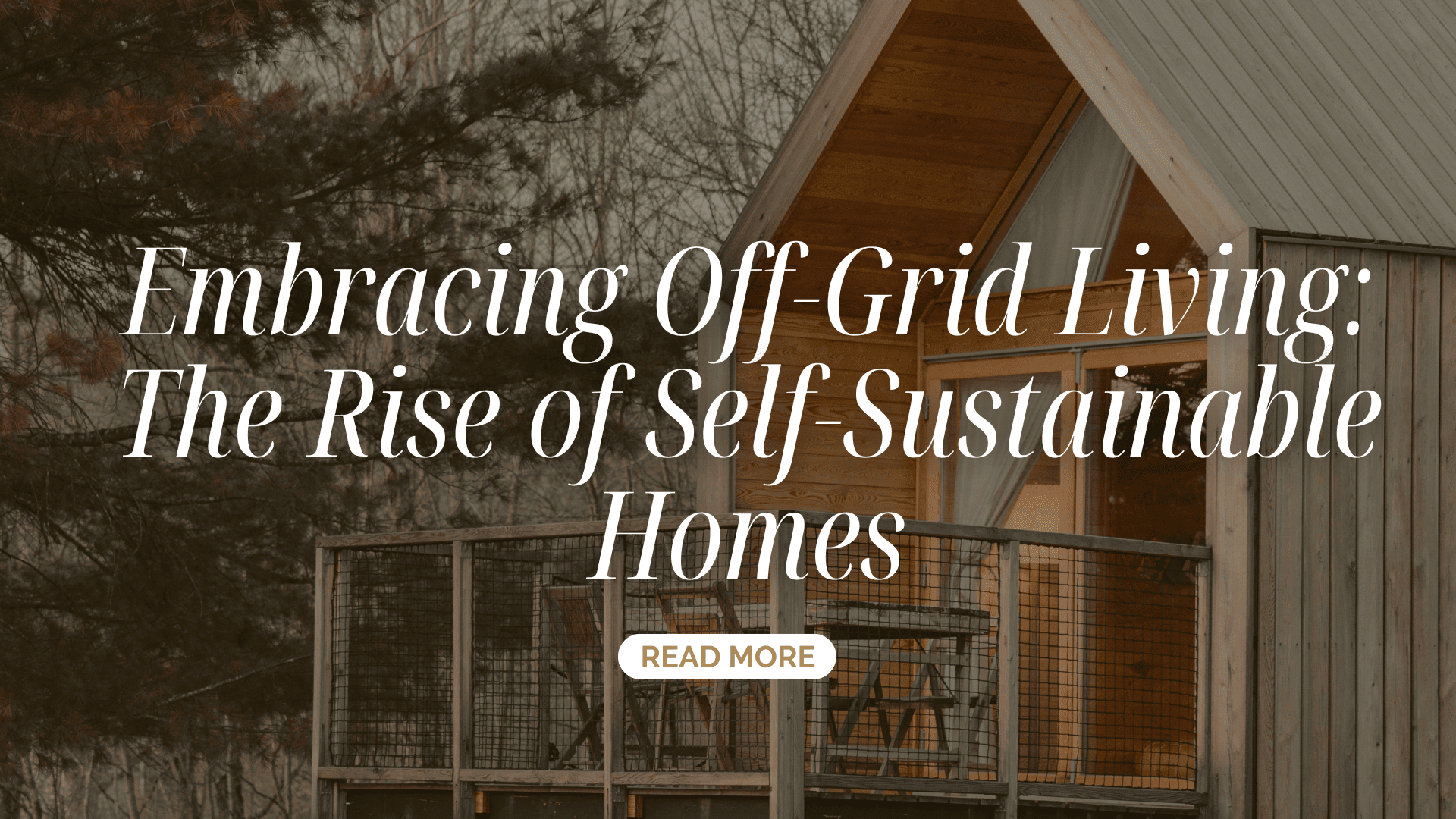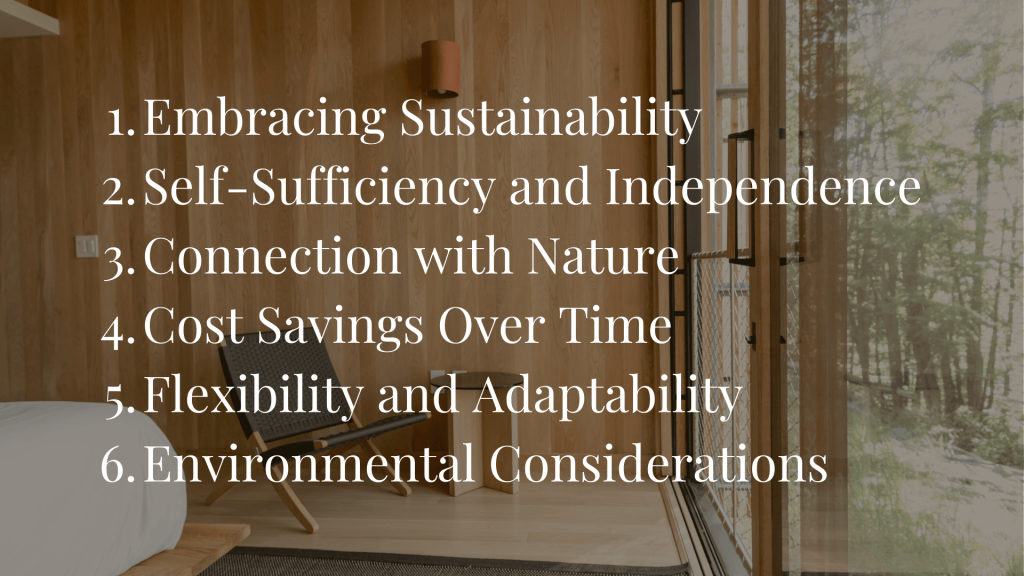
11 Mar Embracing Off-Grid Living: The Rise of Self-Sustainable Homes
“I want to sell my place and move off the grid. Do they come up for sale often?”
In an age marked by environmental awareness and a desire for independence, off-grid homes have emerged as a compelling alternative to traditional urban living. These self-sustainable dwellings, which operate independently from municipal utilities, offer residents the opportunity to reduce their ecological footprint, embrace self-reliance, and connect more closely with nature.
“Though apparently less frequent, they nevertheless occur. Similar to how state sales are less frequent but still occur, power of sales are also uncommon but do occur. In the same way that adults are less frequent, they do occasionally come up for sale. It differs from a set button. Something has to do with solar panels, etc. Still, it’s not required. It won’t be brought up to you if the agent doesn’t tick it off. However, it’s clear that they’re more typical up north than they are down south.”
Let’s explore the unique features, benefits, and challenges of off-grid homes:

1. Embracing Sustainability:
Off-grid homes prioritize sustainability by harnessing renewable energy sources such as solar panels, wind turbines, or hydroelectric systems to generate power. They often incorporate energy-efficient design features, such as passive solar heating, natural ventilation, and high-performance insulation, to minimize energy consumption and maximize efficiency.
2. Self-Sufficiency and Independence:
Off-grid living empowers residents to be self-sufficient and independent from centralized utilities. By generating their own electricity, collecting rainwater, and managing waste on-site through composting or recycling, off-grid homeowners reduce their reliance on external infrastructure and become more resilient in the face of disruptions or emergencies.
3. Connection with Nature:
Off-grid homes are often located in remote or rural areas, surrounded by natural landscapes and abundant wildlife. Residents have the opportunity to immerse themselves in the beauty of nature, enjoying panoramic views, fresh air, and the soothing sounds of the wilderness right outside their doorstep.
4. Cost Savings Over Time:
While the initial investment in off-grid infrastructure may be higher than traditional utility connections, off-grid homeowners can realize significant cost savings over time. By eliminating monthly utility bills and reducing reliance on fossil fuels, off-grid living offers long-term financial benefits and a more sustainable lifestyle.
5. Flexibility and Adaptability:
Off-grid homes come in a variety of shapes, sizes, and architectural styles, ranging from cozy cabins and tiny houses to spacious retreats and eco-villages. Off-grid living is adaptable to different climates, landscapes, and personal preferences, allowing residents to customize their living spaces to suit their needs and values.
6. Environmental Considerations:
Off-grid living promotes environmental stewardship by minimizing resource consumption, reducing pollution, and preserving natural habitats. Off-grid homeowners often adopt eco-friendly practices such as organic gardening, permaculture, and sustainable land management to minimize their environmental impact and promote biodiversity.
Challenges of Off-Grid Living:
Despite its many benefits, off-grid living also presents challenges and considerations. These may include initial investment costs, ongoing maintenance requirements, limited access to amenities and services, regulatory hurdles, and the need for self-reliance and problem-solving skills.
To sum up, off-grid homes present a captivating picture of self-sufficient, sustainable living in balance with the environment. Off-grid residents are paving the way for a future that is more resilient and environmentally responsible by adopting renewable energy, conservation techniques, and an independent mindset. The potential to develop creative, environmentally conscious communities that place a premium on sustainability, self-sufficiency, and a connection to the natural world is growing along with the demand for off-grid living.

